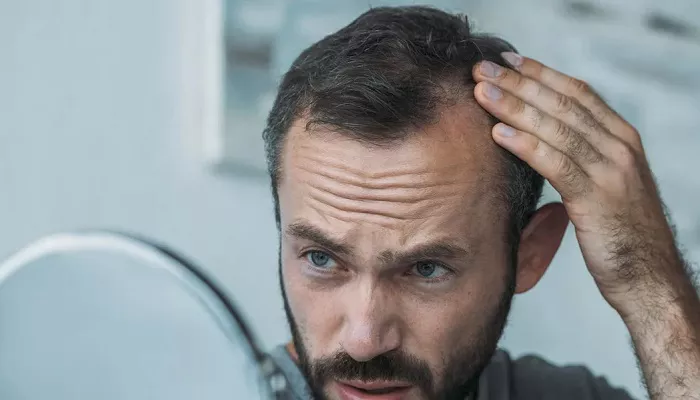LONDON — Scientists have unveiled a surprising new contender in the fight against hair loss: a sugar-based gel that may offer a safe, natural, and effective treatment for androgenetic alopecia. The discovery, made by researchers from the University of Sheffield in the UK and Comsats University in Pakistan, could revolutionize the approach to hair health, offering an alternative to widely used but often side-effect-prone treatments.
From Wound Healing to Hair Growth
The breakthrough came unexpectedly during a study on wound healing in mice. Researchers observed that fur around the treated areas was growing back more quickly than usual. The gel they were testing contained deoxyribose—a sugar naturally found in DNA. Intrigued, the team pivoted their focus to examine its effects on hair regrowth.
Their experiments yielded remarkable results: when applied daily to mice experiencing testosterone-induced hair loss, the deoxyribose gel triggered robust hair regrowth, rivaling that of minoxidil (commercially known as Rogaine). Both treatments resulted in 80–90% hair recovery within weeks.
A Natural Alternative with Major Potential
Unlike some traditional hair loss treatments, the sugar-based gel boasts a number of advantages:
Made from natural, biodegradable ingredients
No reported side effects
Non-toxic and environmentally friendly
Easy topical application
Comparable effectiveness to existing products
This represents a notable shift in hair health tips and strategies, especially when contrasted with oral medications like finasteride (Propecia), which can carry risks such as sexual dysfunction and mood changes.
Understanding the Mechanism
Although the precise biological mechanism remains under investigation, early data suggest that deoxyribose stimulates blood flow and cellular activity in and around hair follicles—factors known to be critical in maintaining hair health. These improvements may explain the dramatic regrowth observed in the test subjects.
Looking Ahead
Dr. Muhammad Anjum, co-author of the study, noted the treatment’s potential not just for common baldness, but also for hair loss following chemotherapy. “This gel could eventually help regrow not only scalp hair but also lashes and brows,” he said. While current findings are limited to male mice, researchers are hopeful that future studies will show similar results in women.
Tissue engineering expert Professor Sheila MacNeil, who also co-authored the study, called the early-stage results “very promising,” but cautioned that human trials are still needed before the gel can be approved for widespread use.
For now, the unexpected discovery shines a hopeful light on the future of natural, science-backed hair loss treatments. It may soon be possible to follow hair health tips that rely less on harsh chemicals and more on gentle, effective innovations—straight from nature’s playbook.
Related Topics:
- 5 Proven Herbal Remedies That Naturally Support Hair Growth
- Muscle Cramps to Hair Loss: Key Signs Your Body Lacks Proper Nutrition
- Top 5 Non-Vegetarian Protein Sources to Boost Hair Growth


